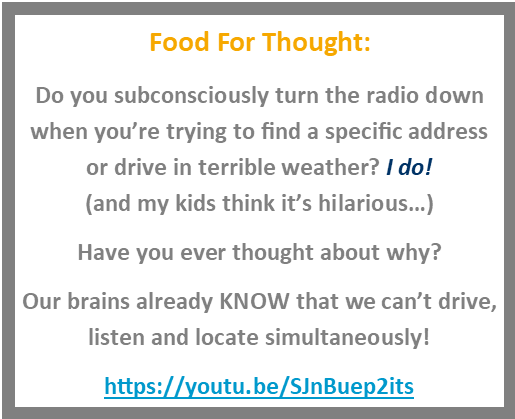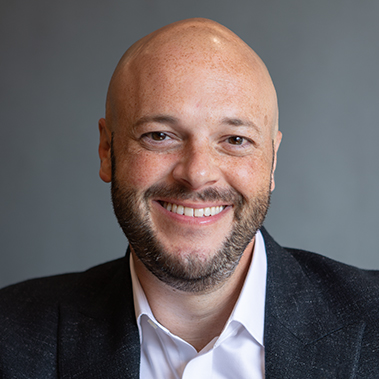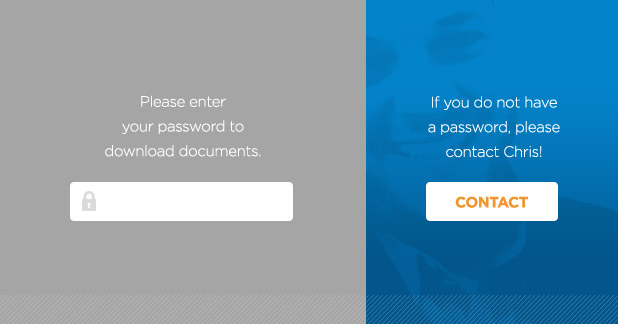I am a multitasker. Give me a task, and I can show you three other things I can do WHILE I’m completing that task! I believe ‘if you need something done, ask the busiest person you know’. That’s me. I’m one of the busiest people you know. When it’s time for someone to volunteer to do a thing… the thing that no one else wants to do… that’s me. My husband says that the word ‘SUCKER’ is printed across my forehead. How do I manage it all? Well, a year ago I would have told you it’s because I’m great at ‘multitasking’!
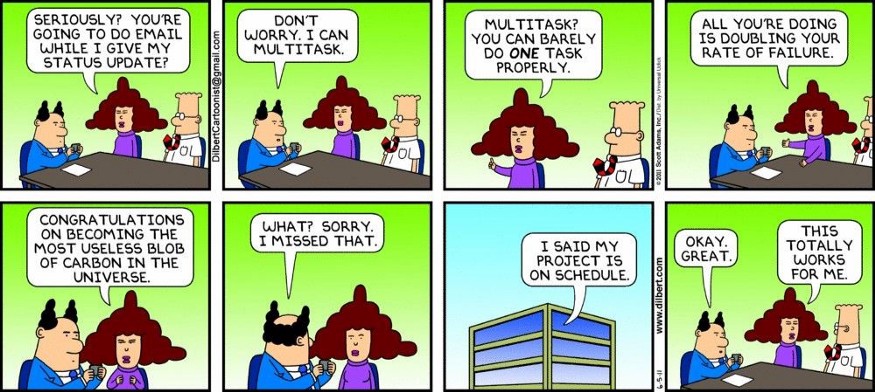
The Challenge:
One day I even multitasked crying! I had taken on so many ‘priorities’ and had so many tasks floating around in my head that I simply couldn’t focus. Each time I tried, I found myself checking my phone, popping open e-mail, or running to the kitchen for a drink. By lunchtime, I was so overwhelmed that I put my head down on my desk and cried. As I sat there I wondered if there was some way that I could be more productive. As I continued to avoid my waiting workload, I started browsing the internet (when overwhelmed, you procrastinate!… Right?? Great strategy!) I happened upon this article about how multitasking isn’t really a ‘thing’ the way people think it is!
Psychological Principle:
Multitasking is not the answer! What I was calling multitasking is actually termed task-switching, according to Guy Winch, Ph.D., author of Emotional First Aid: Practical Strategies for Treating Failure, Rejection, Guilt, and Other Everyday Psychological Injuries. “When it comes to attention and productivity, our brains have a finite amount,” he says.
So, when you’re working on one thing, your brain doesn’t really have the capacity to think about multiple (or even one) other things (with its full capacity) at the same time. “Moving back and forth between several tasks actually wastes productivity”, Winch says, “because your attention is expended on the act of switching gears plus, you never get fully ‘in the zone for either activity.”
In fact, the Institut National de la Santé et de la Recherche Médicale (INSERM) in Paris discovered that when they hooked participants up to an MRI and asked them to complete more than one task – their brains actually split (so half the attention on each task). When they added a third task, the brain just forgot about one of the tasks! These findings suggest that “when there are two concurrent goals, the brain divides in half”, says INSERM neuroscientist Etienne Koechlin, who led the study. Additionally, when a third task was added, three times more mistakes were made!
In addition to splitting your brain power between tasks, every time you switch from one task to another, you lose productivity! Your brain actually has something called the executive control function – it works like a traffic controller for the rest of the brain. When you switch tasks, there are two steps to the executive control process:
- The first stage is known as “goal shifting”: deciding to do one thing instead of another.
- The second is known as “role activation”: changing the rules from the previous task to the rules for the new task.
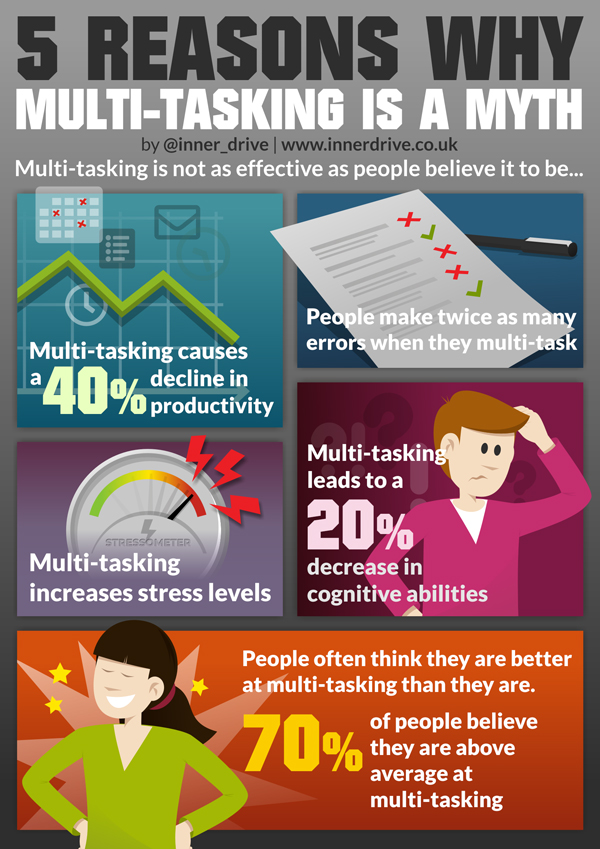 These two steps may take less than a second for your brain to execute – but as we switch between tasks over and over again – that time adds up! Not to mention the added time in switching to another screen or tab, finding where you were before your last switch, and then proceeding with your work! This might not be a big deal while folding laundry and watching tv (my personal favorite time to fold laundry) – but when trying to get tasks accomplished at work or while driving a car, small time losses can add up to big attention lapses and productivity losses (not to mention in some cases, it’s dangerous)! We lose so much time between tasks that might better be spent completing a task!
These two steps may take less than a second for your brain to execute – but as we switch between tasks over and over again – that time adds up! Not to mention the added time in switching to another screen or tab, finding where you were before your last switch, and then proceeding with your work! This might not be a big deal while folding laundry and watching tv (my personal favorite time to fold laundry) – but when trying to get tasks accomplished at work or while driving a car, small time losses can add up to big attention lapses and productivity losses (not to mention in some cases, it’s dangerous)! We lose so much time between tasks that might better be spent completing a task!
Mindset Shift:
More – just means less – less productive! I finally realized that I was doing more harm than good to myself and my work product by trying to do too many things at once! Studies have shown that each time you ‘switch’ between tasks, your productivity and accuracy both plummet! It’s like trying to do your job after not sleeping for over 24 hours!
Instead of trying to convince yourself that multitasking is more productive, try to plan your day so that you can keep multitasking to a minimum!
Performance Shift:
- Plan important tasks for earlier in the day – Plan your day ahead of time and get the most important things done first while you are fresh and it’s easier to focus.
- Schedule your day in blocks – Look at your tasks for the day and schedule them one at a time. Then try your best to focus only on that item during its scheduled time. Batch small mindless tasks together into one block of time. Give yourself Wiggle Room – People are generally terrible about estimating how long a task will take. Factor 5-15 minutes between blocks to allow yourself to stay on schedule.
- Set aside specific blocks through the day to review incoming items (paper correspondence, e-mail, text messages, other notifications). Setting aside specific time for these tasks will help you to not feel ‘required’ to review each item as it arrives.
- Remove distractions – Turn off e-mail notifications, close your door, and turn on the Do Not Disturb or Focus Mode on your phone during blocks of time you have dedicated to focusing on specific tasks
- When you have a specific task to complete, focus only on that task until it’s complete. This sounds elementary – I’m sure your mom told you this when you were a kid. But are you doing it now?
- When you feel overwhelmed, make a list and prioritize! Then once you have a prioritized list, find a starting point and work on one thing until it’s finished (or until you’ve done as much as you can with it at that point), then move on to the next task.
- Write urgent things down, but don’t switch to working on them. If you’re in the middle of focusing on a task and you remember something urgent – take a moment to write it down – and then go immediately back to your focus task. The act of writing it down will reassure you that you won’t forget the task again, while still allowing you to continue (nearly uninterrupted) with the task at hand. Your brain won’t feel obligated to spend energy remembering that item. You’ve written it down, and you will get to it when the task at hand is complete!
So, now I am a recovering multitasker. I am practicing more focused work. I’ve finally embraced the limitations of my own brain and I am learning to focus on one task at a time. There will always be times when multitasking is effective or even necessary – taking notes during a meeting, folding laundry while watching tv, brainstorming while assembling information packets, basically – any mundane task that doesn’t really require your full attention can selectively be combined with other simple tasks. There will also be times when I forget that I’m not supposed to be popping into e-mail while I’m working on other things… after all, I said I was practicing more focused work, not perfect!
Written By: Jen Barnett



